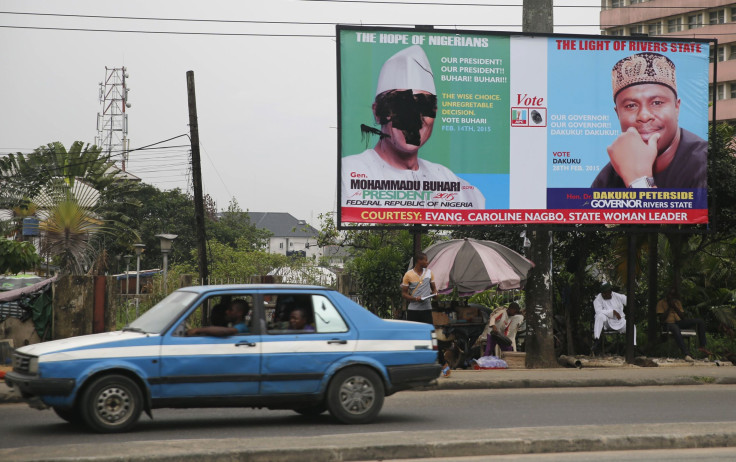Nigeria Elections 2015 Restrictions: 'Total' Travel Ban Set For Day Of Vote

Preparing for a contentious round of elections, Nigeria announced Tuesday a set of voting-day restrictions that would halt the movement of all but the most essential traffic in the West African country. With the exception of fire trucks and ambulances, officials decreed a “total restriction” on vehicles beginning when polling stations open at 8 a.m. March 28 and lasting throughout the day, when residents of Africa’s largest economy are scheduled to vote for a new president and parliament in Nigeria’s first nationwide elections since 2011.
Election-day travel restrictions aren’t uncommon in Nigeria, which has been rocked by political violence in previous years. But this election may prove particularly sensitive, as President Goodluck Jonathan jockeys for a second term amid criticism that his government has done too little to fight Boko Haram insurgents.
Nigerian officials postponed the elections for six weeks after its original February date over security concerns. The move worried international observers, and Jonathan’s chief rival said the election delay “gravely compromised” the independence of its election process.
On Tuesday, reports emerged that more than 400 women and girls had been abducted from Damasak, a village in Northern Nigeria that has been recently liberated. Government officials have yet to comment on the reports.
“Adequate security logistics and manpower have been strategically deployed to achieve a most conducive electioneering atmosphere,” Inspector General of Police Suleiman Abba said in a statement. “Policemen for election duty have been properly trained, briefed and sensitized on their roles.”
Despite the ban on motor vehicles, the elections are expected to draw a major turnout. Nearly 80 percent of voting age citizens reported in a recent survey that they plan to vote. Polling suggests that the results remain too close to call. A round of gubernatorial elections, scheduled for April 11, will be subject to the same travel restrictions.
© Copyright IBTimes 2024. All rights reserved.












